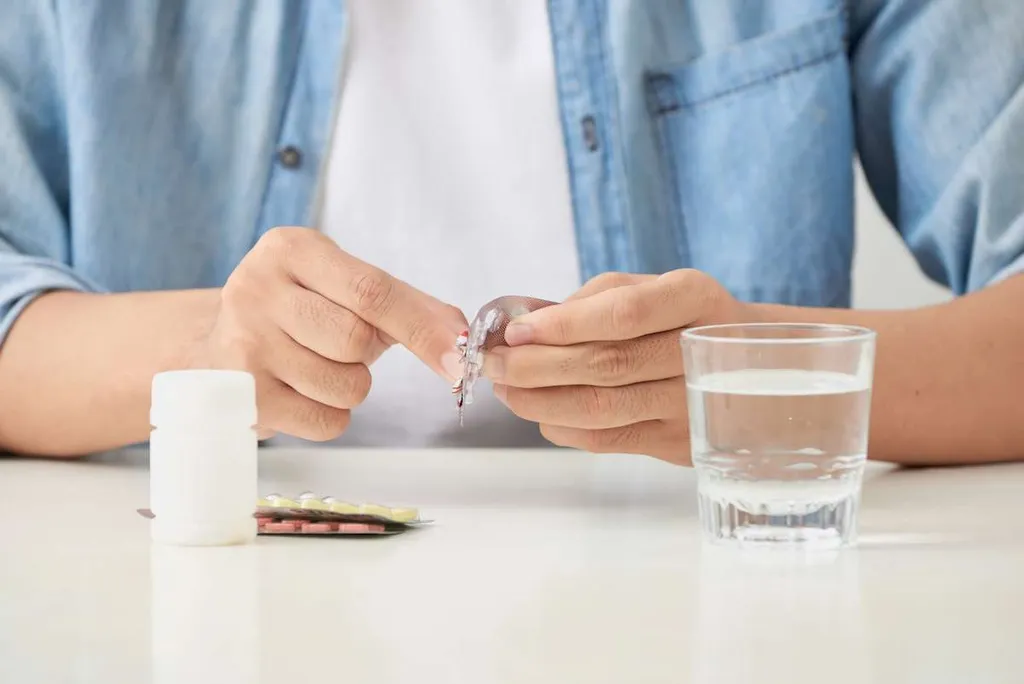
It should also be noted that the amount of alcohol provided in this study (mixed with can alcohol cause blood clots soft drinks) equaled that typically consumed in one or two drinks. How long the reduced clotting processes (due to thinner blood) remained in effect was not the focus of the study, and further research is required. Deep vein thrombosis is a type of clot that forms in a major vein in a leg, arm, pelvis, or other part of the body. These clots are dangerous because they can cause a buildup of blood, leading to swelling and preventing oxygen from circulating effectively around the heart. A piece of the clot may also break off and enter the heart or lungs where it becomes wedged and may cause a heart attack or pulmonary embolism.
- According to the Centers for Disease Control and Prevention (CDC), an estimated 900,000 people in the United States are affected by DVT each year.
- This type of blockage can lead to life-threatening conditions such as pulmonary embolism, stroke, or heart attack.
- I made sure to discuss this with my doctor to get personalized advice based on my medical history and current condition.
How Long Does It Take for Alcohol Damage to the Body to Heal?
Alcohol can interact with certain medications used to treat and prevent DVT, such as anticoagulants, and increase the risk of bleeding. It’s crucial to consult with your healthcare provider to understand how alcohol may interact with your specific treatment plan and any underlying health conditions. It’s important to note that moderate alcohol consumption may not have the same impact on DVT risk. In fact, some studies have suggested that moderate alcohol intake, particularly red wine, may have a protective effect on the cardiovascular system. However, the evidence regarding the specific effects of moderate alcohol consumption on DVT risk is not conclusive, and individual factors such as age, gender, and overall health should be taken into consideration.
So, is the reward worth the risk?

The World Health https://ecosoberhouse.com/ Organization recommends a balanced diet that includes a variety of nutrient-dense foods to support overall health and reduce the risk of cardiovascular diseases, including DVT. The Providence Project’s residential alcohol treatment programme provides a structured and supportive environment to monitor and assist with alcohol-related disruptions in your system. If a loved one is experiencing alcohol-related anaemia or disruptions in blood clotting, don’t hesitate to ask for help. Contact The Providence Projects today to learn more about our services and help them start their journey towards recovery right now. We offer immediate admissions to our rehabilitation centre in Bournemouth.

Can You Prevent an Alcohol Flush Reaction? Know the Facts

Clots form naturally all the time to heal internal and external injuries. A scab that forms after you get a cut, for example, is a type of blood clot. In this article, the term “moderate drinking” generally refers to the consumption of one or two drinks per day.
- While the majority of people enjoy a glass of wine or a pint of beer from time to time, American Addiction Centers warn that having more than two servings of alcohol a day could boost your risk of dangerous clots.
- We offer immediate admissions to our rehabilitation centre in Bournemouth.
- Healthcare professionals treat AUD with medications and behavioral therapies.
- Furthermore, alcohol consumption may also affect the overall health and well-being of individuals who have had DVT.
- Second, various cut-off values for the categories of alcohol intake were used across studies, which led to a certain degree of heterogeneity.
However, in a person who has liver disease, which can becaused by alcohol, the fluid balance is less regulated. The kidney will receive too much or too little blood to filter, making it work harder. Alcohol irritates the stomach lining, leading to inflammation known as gastritis. Over time, this can progress to the development of stomach ulcers, which are open sores in the stomach lining. Alcohol’s corrosive effects weaken the mucosal barrier that protects the stomach, leaving it vulnerable to damage.

If a person is experiencing any mental health issues, such as anxiety or depression, due Substance abuse to health concerns, they can contact a doctor or therapist. Healthy lifestyle choices are also important, including regular movement, eating a healthy diet, maintaining a healthy weight, and avoiding smoking. Taking all medications as a doctor prescribes and attending any checkups are important with DVT, and may help prevent a repeat event. It is also important to avoid dehydration, so people should drink plenty of fluids, such as water, throughout the day.

Reducing Alcohol Use Can Boost Urinary Health
Paul is passionate about high-quality addiction treatment and truly believes that, with the right treatment, anyone can recover. Below are answers to common questions about whether alcohol may thin the blood. People can speak to their doctor if they think they or someone they know may have AUD. Additionally, the National Institute on Alcohol Abuse and Alcoholism (NIAAA) offers guidance on finding treatment and support for AUD.
- In addition, the reduced platelet clumping capability was examined in test tubes, and not in human venous blood flow, again putting into question exactly what the ramifications of alcohol have in regard to blood clotting processes.
- DVT can also cause long-term complications such as chronic pain, swelling, and skin changes in the affected area.
- But sometimes, blood clots form for other reasons, like being on bed rest or in the hospital for a long time, having a weight that’s not healthy for you, being genetically predisposed to blood clots or having a blood clotting disorder.
- According to the National Institute on Alcohol Abuse and Alcoholism, excessive alcohol consumption can lead to a hypercoagulable state, meaning the blood is more prone to clotting.
- Alcohol affects the body in numerous ways, particularly the cardiovascular system.
- Monocytes and macrophages clear invading microorganisms as well as foreign or defective proteins from the blood by engulfing and subsequently destroying them.
The American Heart Association (AHA) does not recommend drinking alcohol because of its risk of heart damage, including increased risk of blood clots. While moderate drinking is less dangerous than excessive drinking, it is important to avoid drinking alcohol at all if you have concerns about your cardiovascular health or concerns about blood clots. You should also speak to your doctor about weight management, healthy eating, and exercise to change cholesterol, blood pressure, and heart health more effectively than you can with red wine or any other serving of alcohol. Alcohol has numerous adverse effects on the various types of blood cells and their functions. For example, heavy alcohol consumption can cause generalized suppression of blood cell production and the production of structurally abnormal blood cell precursors that cannot mature into functional cells. Alcoholics frequently have defective red blood cells that are destroyed prematurely, possibly resulting in anemia.
